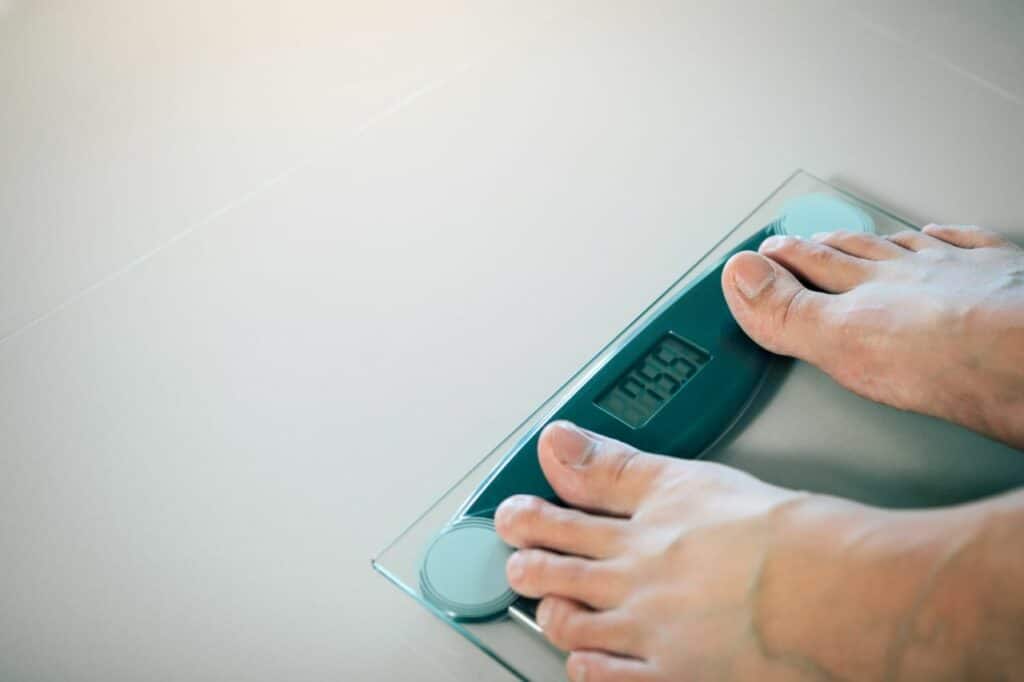Weight is something that many of us struggle with. According to the World Health Organization, 1.9 billion adults are overweight or obese across the globe. The health impacts of being overweight or obese are vast and can increase your risk for developing Chronic Kidney Disease (CKD).
The kidneys, found at the bottom of the rib cage, are an integral part of managing the fluids within our body. When we eat or drink, the fluid gets filtered through the kidneys from the blood and is then excreted into the urine. Kidneys also play an essential part in regulating pH, salt, and potassium in the body and producing hormones that regulate blood pressure.
Kidney disease affects about 37 million adults in the United States. People who are overweight with diabetes and high blood pressure have the highest risk of developing CKD.
In this post, we will dive into how weight affects CKD.
The Link Between Weight and CKD
The science shows that people who are obese are more likely to develop kidney disease.
What’s more, being overweight increases the risk for diabetes and high blood pressure. In turn, high blood pressure and diabetes are the two primary causes of kidney disease. Research also shows that being overweight can also directly impact your kidneys because the excess weight forces the kidneys to work harder and harder and bear the burden of filtering wastes above the normal level.
Over time, the extra work increases your chances of getting kidney disease.
The extra weight can also activate the body’s “fight-or-flight response,” which releases hormones that may increase sodium retention and raise blood pressure while also making it harder for the body to remove excess sugars from the blood, which causes diabetes. What’s more obesity-related inflammation can also impair the kidney’s function.
Achieving and Maintaining a Healthy Weight
The good news is there are some simple ways to achieve and maintain a healthy weight to keep your kidney and all of your organs healthy and happy.
- Know your Body Mass Index (BMI): Your BMI will give you an idea of your total body fat percentage. Normal BMI is generally between 18 and 25. A BMI between 25 to 30 is considered overweight, and greater than 30 is deemed obese.
- Make lifestyle changes: Aim for at least 30 minutes of exercise per day, even if it’s just a walk around your neighborhood.
- Watch your portion sizes and incorporate fresh fruits and vegetables into every meal. Don’t forget to drink water.
- You can contact the Texas Kidney Institute for a consultation with their nutritionists to determine what health plan would best work for you.
- It’s crucial to stick to a low-salt diet, especially if you have high blood pressure and kidney disease because once the kidneys become damaged, they can no longer eliminate excess salt, which then leads to more kidney damage, fluid, and waste buildup.
- Do muscle strengthening exercises like pushups at least two times per week.
- Avoid processed foods, foods high in sugar, salt and fat, as well as soda, juice, and other sugary drinks.
- Have your kidneys checked: two simple tests, your blood, and urine, are all you need to get your kidneys tested for any signs of kidney disease.
- If you have diabetes, control your blood sugar.
- If you have high blood pressure, control it.
Focusing on your health will not only lower your chance of Chronic Kidney Disease and other health conditions, but you will see improvements in your mental health and overall attitude, too, and you will be well on your way to becoming an overall healthier, and happier person.

